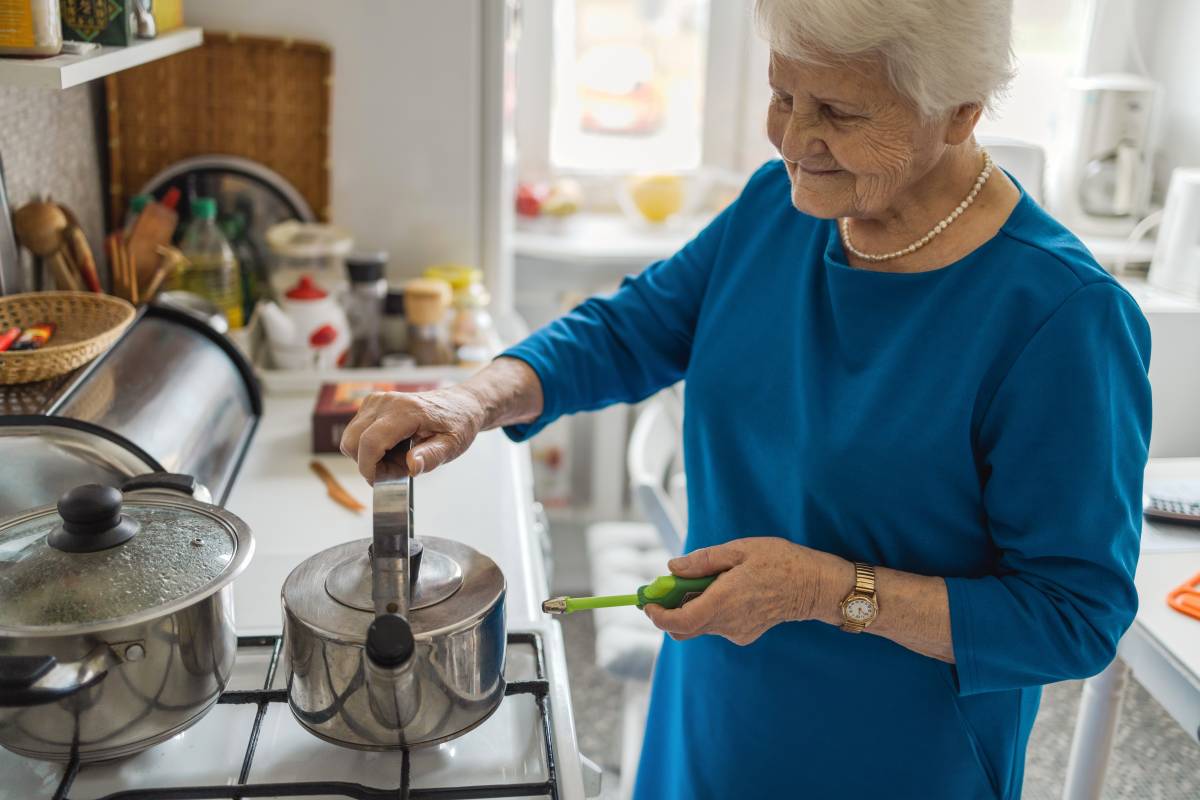People in their nineties and older may see adverse health events as a 'source of embarrassment'
People in their late nineties and older appear to be reluctant to acknowledge the progressive nature of the ill health they are experiencing and tend to minimise events deemed to be of a fairly serious nature.
That is one of the findings from a study carried out by researchers from the University of York and Newcastle University, which was published last month (December 2022) in the journal PLOS One.
The research, which focuses on the lives of 23 people from Newcastle-upon-Tyne, was part of a 10-year follow-up study linked to the Newcastle 85+ study – an observational study that has been tracking the experiences of people born in 1921 over the decades.

Redefining 'a fall'
One of the women – who seemed keen to show that she could cope with a ‘significant health issue’ (breaking a hip) – told a researcher: ‘That was three weeks [in hospital] … Yes, it was alright. I soon got over that.’
The participants wanted to avoid portraying events in a light that that might erode their independence, the authors state. ‘Claims of ill health could be seen as a threat to autonomy. Consequently, positioning self as healthy, capable and safe was common … this was potentially to protect against as the associated risks to autonomy posed by loss of health status.’
Another participant said she had denied having another fall when she spoke to a doctor, preferring to call it a ‘slide’. ‘It was funny, the last fall I had … The doctor up there said, “Well, we’re trying to put you in a home” I said, “Don’t you dare”.’
Participants developed 'workarounds'
In many cases, multiple and complex health conditions had been minimised to the point of participants not recognising the extent that health problems impacted on their lives. The researchers found that participants developed ‘workarounds’ in a bid to ‘normalise’ things and reduce the impact that any limitations had on their everyday routines – though in reality their lives could be considered to be 'severely limited’.
The researchers state: ‘Some participants considered adverse health events, and waning health more generally, to be a source of embarrassment, particularly when they occurred in public. Consequently, framing ill health through minimising symptoms and outcomes appeared to be a strategy many participants shared.’
The paper links such behaviours to the concept of ‘positioning theory’, noting that participants presented themselves to their ‘audience’ (friends, healthcare professionals, family or researchers, for example) as being relatively healthy and able to deal with health concerns as they arose.
‘Most participants did not want to be seen to make a fuss or draw undue attention to themselves or their situation, or appear to be unable to cope in any way.’
The five key elements to 'sustaining a positive attitude to life after the age of 95' (summarised below)
- maintaining a sense of independence (even if that means reframing what independence is to them)
- being able to reflect on past successes
- being in control over when they need help from family members
- being outwardly presentable
- normalising the impact of ill health
'Passion for life' remains
Being independent came through strongly as a way of explaining their continued passion for life, and was strongly equated to feelings of dignity and youth. A bit of risk-taking, particularly with their health, was also important [Joy Adamson]
Co-author Joy Adamson, from the University of York’s department of health sciences, said: ‘People in the UK are living longer than ever before and as such it is important that we understand the experiences of older age so that society can support them, but also afford them the dignity that comes with independence.
‘We found that participants in the study saw themselves as content with their lives, despite their world becoming smaller, and in poor health and other challenges, they were able to find pleasure in the smaller things of their daily routines and events.
‘Being independent came through strongly as a way of explaining their continued passion for life, and was strongly equated to feelings of dignity and youth. A bit of risk-taking, particularly with their health, was also important in order to keep their autonomy, particularly with family, where children had now become the carer.’
Professor Adamson and her colleagues argue that researchers should focus more on people in their nineties and beyond, not just on those aged from 65 to 80.
To read the open-access paper, titled Identity construction in the very old: A qualitative narrative study, visit: https://journals.plos.org/plosone/article?id=10.1371/journal.pone.0279098
Author: Ian A McMillanShare it with














